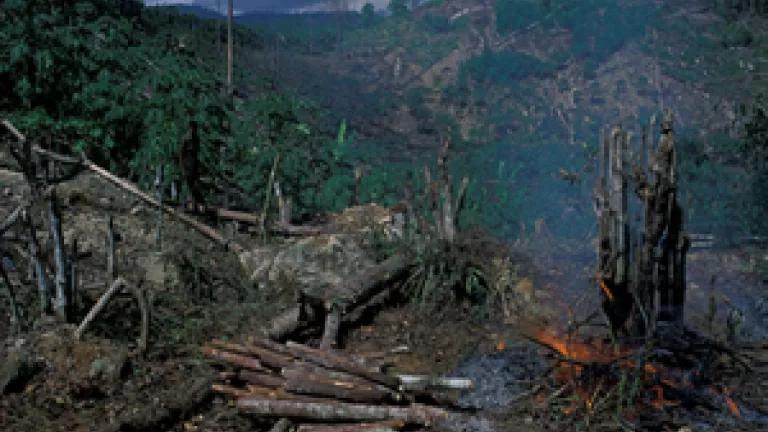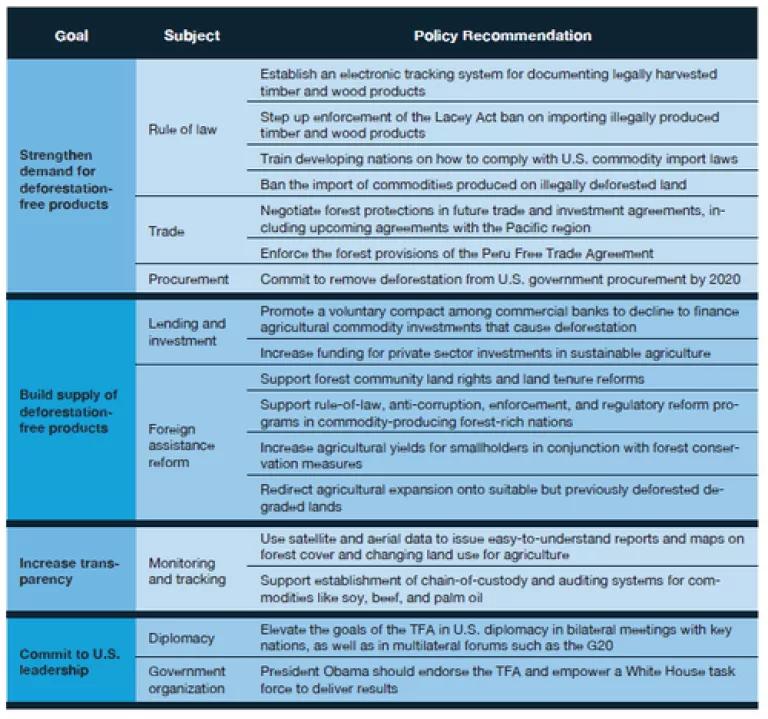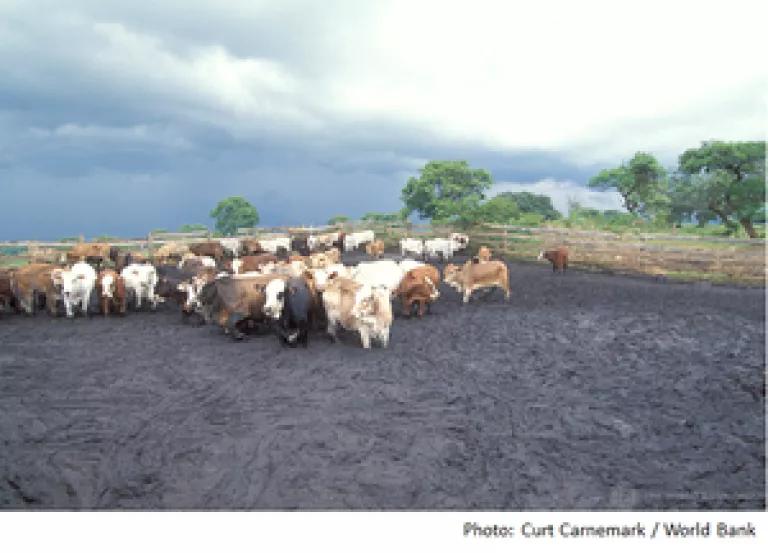Break the Link between Deforestation & Commodities: A New Opportunity for the Obama Administration to Act on Climate Change

This post was co-written with Cecilia Springer of Climate Advisers.
There is a new opportunity for the United States to curb deforestation and slow climate change. Deforestation accounts for around 15% of the world’s global warming pollution – so any step to address this forest loss will go a long way in minimizing climate change. As it turns out, demand for beef, soy, palm oil, paper, and other commodities is a major contributor to forest loss around the world. A new partnership between major companies and governments – The Tropical Forest Alliance – could make a major dent in deforestation by helping companies and countries go “deforestation-free” in their supply chains – but only if the Alliance acts decisively. That is the finding of seven leading groups in a new report.
Clearing of land to create pasture for cattle ranching is the primary cause of deforestation in the Amazon. In Southeast Asia and South America, rainforests are converted to plantations for paper production and for palm oil, which is used in processed foods, cosmetics, cooking oil, and trucks. And Africa is emerging as the new frontier for commodity-driven deforestation. In other words, global demand for a handful of key commodities is helping drive deforestation.
Last year at Rio+20, the Consumer Goods Forum – a consortium of more than 400 major companies – joined the U.S. government in launching the Tropical Forest Alliance 2020, a public-private partnership that aims to end deforestation in their supply chains by the end of the decade. The Alliance has now been expanded to include the United Kingdom, Netherlands, and Norwegian governments.
The companies in the Consumer Goods Forum have recognized that unsustainable expansion into forests from these commodities is threatening their business model while driving climate, environmental, and social damage. In 2010 these companies committed to go “deforestation-free” in their supply-chain by 2020. Now they are in various stages of implementing supply chain actions and are seeking the assistance of key governments and non-governmental organizations to meet this commitment.
This Alliance has the potential to significantly transform international markets towards sustainability, but only if the governments and companies increase their ambition and follow through with concrete actions. Governments – starting with the U.S. – must step up.
With strong U.S. government leadership, the Alliance could help spur climate-smart agriculture on a global scale. In a new report, “Breaking the Link between Commodities and Climate Change”, seven leading groups (including NRDC) and Climate Advisers, detail specific actions that the Tropical Forest Alliance could implement to help eliminate deforestation in the supply chain of major commodities. “Breaking the Link” provides a blueprint for the U.S. government to lead this charge. It urges the administration to drive the success of the Alliance at the highest level of the U.S. government. It also points the Administration and Congress to a broad suite of policy levers for addressing commodity-driven deforestation – including trade, procurement, lending and investment, and foreign assistance. The toolbox is large and filled with lots of promising actions:

Ending commodity-driven deforestation is a cost-effective, economically smart and politically viable climate solution that enjoys the support of businesses worldwide. In fact, some of the world’s most recognizable companies – including Coca Cola, Unilever, and Nestle – have asked governments to help them address the climate emissions and forest destruction caused by the production of many agricultural commodities.

Corporate concern over commodity supply chains offers the U.S. Administration a chance to make a huge impact on climate change and deforestation. With leadership from the U.S. government that matches the ambition of companies in the Tropical Forest Alliance, the Alliance will have a chance to meet its goal of ending commodity deforestation by 2020.
It is time to go deforestation-free in our global supply chains.

